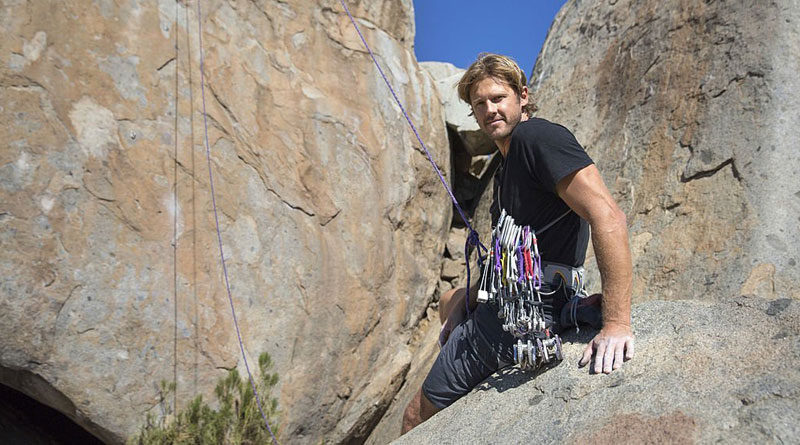10 Surprising Benefits of Rock Climbing
Rock climbing is an outdoor sport that involves scaling natural or man-made rock formations. Rock climbing, once considered a niche activity, has grown in popularity in recent years due to its numerous physical and mental health benefits. While some may regard rock climbing as an extreme or risky activity, with proper training and equipment, it can be enjoyed by people of all ages and fitness levels. In this blog post, we will look at the surprising benefits of rock climbing and why it should be included in your fitness routine. Whether you’re a novice or a seasoned climber, you might be surprised at how much this sport has to offer.
Physical Benefits of Rock Climbing
Rock climbing is a full-body workout that can improve your strength, endurance, and overall fitness. It requires you to use your arms, legs, and core muscles to navigate the rocks and maintain your balance.
Increased strength and endurance
One of the most significant physical benefits of rock climbing is increased strength and endurance. Climbing requires you to use your muscles in ways that you may not typically use in everyday life. As you climb, you’ll be engaging your arms, legs, and core muscles, building strength and improving your endurance.
Improved flexibility and balance
Climbing rocks can also help you improve your flexibility and balance. It forces you to move your body in different directions, which can help improve your flexibility and range of motion. Climbing also requires you to keep your balance, which can help you improve your overall sense of balance and coordination.
Cardiovascular exercise
Another physical benefit of rock climbing is cardiovascular exercise. Climbing can get your heart rate up and improve your cardiovascular fitness. The repetitive motions of climbing can also help you burn calories and lose weight.
Low-impact workout for joints
Rock climbing is also a low-impact joint workout. Climbing is less taxing on your joints than other high-impact sports like running or basketball. This makes it an excellent exercise option for people who are recovering from an injury or who have joint problems.
Increased bone density
Finally, rock climbing has been shown to increase bone density. Climbing is a weight-bearing exercise that can aid in the development and maintenance of strong bones. This is especially important for women, who are predisposed to osteoporosis as they get older. You can improve your bone density and reduce your risk of fractures and other bone-related injuries by incorporating rock climbing into your fitness routine.
Mental Benefits of Rock Climbing
In addition to its physical benefits, rock climbing has numerous mental health benefits as well.
Improved problem-solving skills
Climbing requires a high level of problem-solving ability. You must determine the best route up the rock face and make quick decisions to adjust your movements as necessary. This can help you improve your problem-solving abilities and ability to think on your feet.
Increased focus and concentration
Rock climbing requires a high level of focus and concentration. When climbing, you must be completely present in the moment and concentrate on your movements. This can help you improve your overall ability to concentrate and focus on daily tasks.
Boosted confidence and self-esteem
Another mental edge of rock climbing is increased confidence and self-esteem. Climbing can be a difficult and intimidating sport at first, but as you progress and conquer difficult routes, you’ll feel a sense of accomplishment and pride in your abilities. This can boost your confidence and self-esteem, which can spread to other areas of your life.
Reduced stress and anxiety
Climbing can also reduce stress and anxiety. The physical exertion of climbing can help release endorphins, which can improve your mood and reduce feelings of stress and anxiety. Additionally, being in nature and enjoying the beautiful views while climbing can have a calming effect on your mind and help reduce feelings of anxiety and depression.
Enhanced mindfulness
Finally, rock climbing has been shown to improve mindfulness. Climbing requires being completely present in the moment and concentrating on your movements and surroundings. This can help you develop mindfulness, which is the practice of being fully present and engaged in the present moment. You can improve your mindfulness and overall sense of well-being by incorporating rock climbing into your routine.
Conclusion
To summarize, rock climbing is a physically and mentally demanding sport that provides numerous benefits to those who participate on a regular basis. It can help you gain strength, endurance, flexibility, balance, and cardiovascular health, as well as improve your problem-solving abilities, focus, confidence, self-esteem, and overall sense of well-being. The case studies in this article demonstrate how transformative rock climbing can be for people seeking personal growth and self-discovery. Consider trying rock climbing if you’re looking for a fun and exciting way to improve your physical and mental health. It could be the push you need to reach your full potential.




